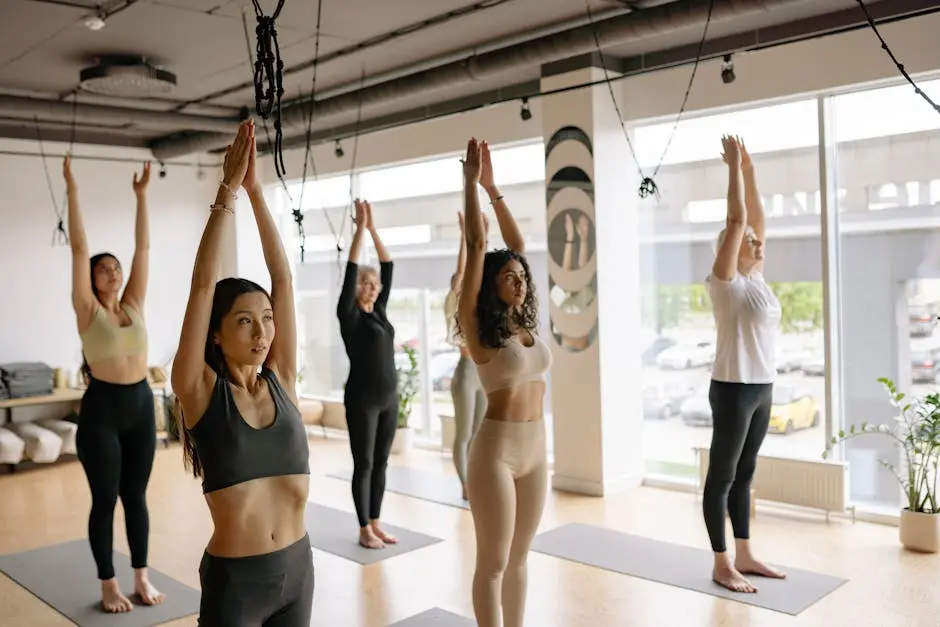What Qualifications Do I Need to Be a Yoga Teacher?
Becoming a yoga teacher is a rewarding journey, but it often raises questions about the necessary qualifications. Whether you're considering a career change or simply want to deepen your practice, understanding these qualifications is crucial. Let's break down what it takes to become a certified yoga instructor.
Step 1: Understand Yoga Teacher Training Programs
>Explore the various yoga teacher training programs available and their duration, content, and certification.
Yoga teacher training programs can vary widely. Some may last only a few weeks, while others can stretch on for several months. As you research, pay attention to the curriculum offered and the instructors' backgrounds.
Look for programs that cover not just physical yoga practice but also philosophy, anatomy, and teaching methodology. These components are essential for becoming a well-rounded yoga teacher.
Many training programs culminate in a certification, which is important for your career prospects. However, remember that the quality of your education matters more than the certificate itself.
Step 2: Complete a Registered Yoga Alliance Training
>Find a Yoga Alliance accredited program that offers at least 200 hours of training to ensure credibility.
Yoga Alliance is a well-respected organization that sets standards for yoga teacher training. Completing a training that is recognized by them can open doors to teaching opportunities.
In a 200-hour program, you can expect to dive deep into various areas, including yoga postures, alignment, and adjustments. You'll also learn about the history and philosophy of yoga, which forms the foundation of your teaching practice.
Additionally, check if the program includes practical teaching experience. Being able to teach under supervision helps build your confidence and skills.
Step 3: Gather Practical Teaching Experience
>Gain hands-on teaching experience by assisting classes or teaching friends to build your confidence.
Consider volunteering as a teaching assistant in local yoga studios. This experience will not only allow you to observe seasoned instructors but also give you the chance to interact with students.
If you don't have that opportunity right away, you can start your teaching practice by leading small groups of friends. This informal setting can be a low-pressure way to find your style and develop your skills.
Remember, teaching is an art that requires practice. The more you teach, the more comfortable you'll become in front of a class, so seize every opportunity.
Step 4: Cultivate Your Personal Practice
>Commit to a consistent yoga practice to deepen your understanding and connection with the teachings.
Your personal practice is a vital component of being an exceptional yoga teacher. It helps you embody the principles and techniques you'll share with your students.
As you deepen your practice, consider exploring various styles of yoga. Each style has unique aspects that inform how you might teach, enriching your experience and approach.
Also, remember that your journey will evolve. Stay open to learning new poses, philosophies, and teaching methods. This growth will naturally enhance your teaching.
Step 5: Stay Current with Continuing Education
>Engage in workshops and advanced training to enhance your skills and keep up with evolving practices.
The yoga landscape is always changing, with new methodologies and philosophies emerging. To remain relevant, it’s important to prioritize continuing education.
Attending advanced workshops can not only provide valuable skills but also introduce you to different perspectives. Networking with other yoga teachers can also lead to collaborative opportunities.
Stay curious and open-minded! Dive into training with renowned instructors or participate in specialty courses, like yoga for seniors or trauma-informed yoga. This broad knowledge can vastly improve your teaching persona.
Final Thoughts on Becoming a Yoga Teacher
In summary, the qualifications to become a yoga teacher involve a blend of formal education, personal practice, and teaching experience. By investing in your education and committing to your yoga journey, you'll be well on your way to inspiring others.


